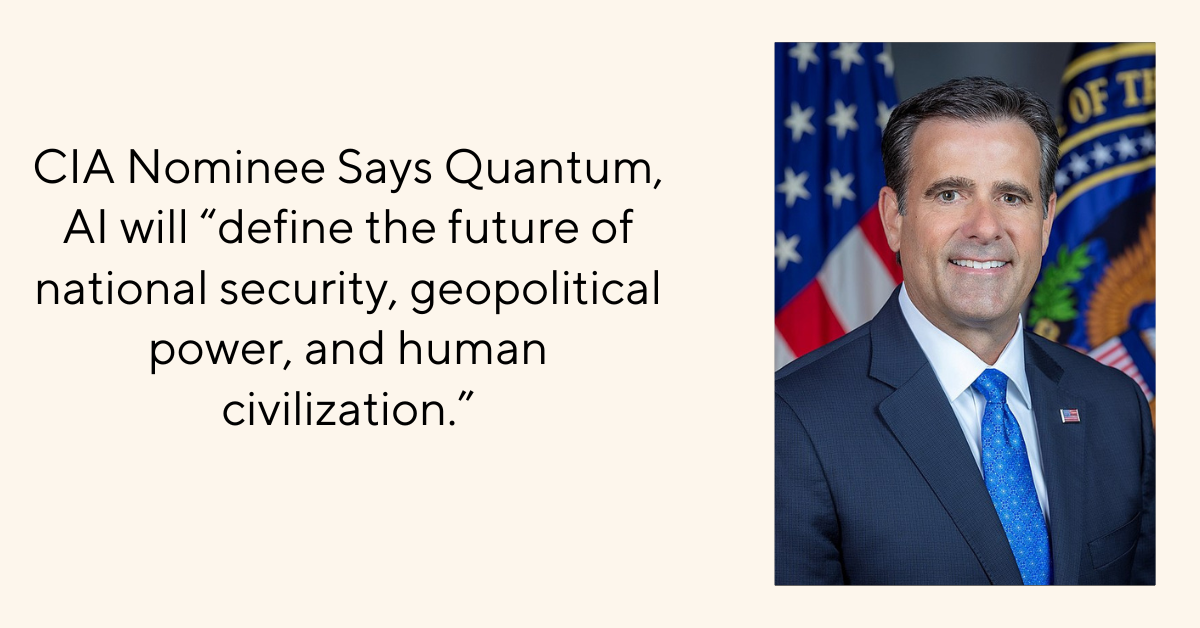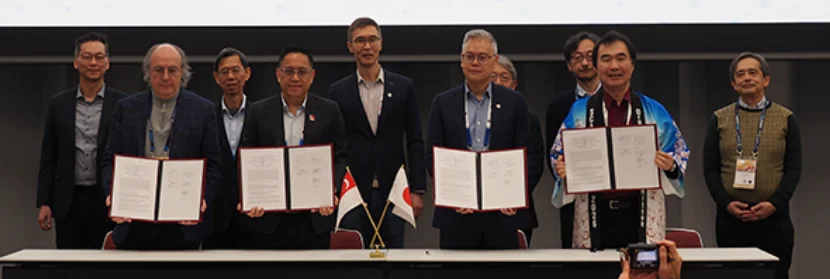Insider Brief
- CIA nominee John Ratcliffe emphasized that emerging technologies like quantum computing and AI are critical to the future of national security, particularly in countering China’s global ambitions.
- Ratcliffe highlighted the dual role of technology as both a vital tool and a significant target, pointing to advancements in quantum, AI, and surveillance as key challenges for the CIA.
- He pledged to modernize the agency by fostering a merit-based culture, recruiting specialized talent, and intensifying efforts to address threats posed by adversaries like China.
- Image: Official portrait (Wikipedia)
John Ratcliffe, nominated to lead the CIA, emphasized in this opening statement the critical role of emerging technologies such as quantum computing and artificial intelligence (AI) in shaping the future of national security during his confirmation hearing. Speaking before the Senate Intelligence Committee, Ratcliffe framed these technologies as not only transformative tools but also as pressing targets in the geopolitical competition, particularly with China.
“These threats converge at a time of rapid technological change,” Ratcliffe said. “Emerging technologies like artificial intelligence and quantum computing will define the future of national security, geopolitical power, and human civilization. Ubiquitous technical surveillance is presenting unprecedented challenges to one of the
CIA’s core missions: collecting human intelligence. In short, the challenges are great, and increase the necessity of confirming a CIA Director who is prepared on Day One to take them head-on.”
Ratcliffe linked the rapid pace of technological advancement to a shift in the global balance of power. He identified China as the United States’ primary adversary, citing Beijing’s investment in quantum technologies and AI as part of its broader strategy to dominate economic, technological and military domains.

“Because our adversaries – and one in particular, which I will discuss now – understand that the nation who wins the race in the emerging technologies of today, will dominate the world of tomorrow,” Ratcliffe said. “Which brings me to the need for the CIA to continue – and increase in intensity – its focus on the threats posed by China and its ruling Chinese Communist Party.”
Explaining the Technologies
Quantum computing, a new but rapidly developing field, leverages the principles of quantum mechanics to process information at unprecedented speeds. Unlike classical computers that use binary bits (0s and 1s), quantum computers use “qubits,” which can represent multiple probabilistic states, theoretically enabling them to tackle problems that are currently unsolvable by conventional systems. Ratcliffe noted that adversaries’ advance in such technology could compromise U.S. intelligence and cybersecurity.
Artificial intelligence, another focus of Ratcliffe’s testimony, refers to computer systems capable of performing tasks that typically require human intelligence, such as analyzing vast datasets or identifying patterns. In the context of national security, AI has applications in surveillance, threat detection and military operations.
Ratcliffe highlighted the dual role of technology — particularly emerging tech, including AI and quantum — as both a tool and a target.
“As a target, technology is more important than ever, whether it’s understanding our adversaries’ capabilities in AI and quantum computing, or their developments in hypersonics and emerging space technologies, or their innovations in counterintelligence and surveillance,” he said.
He pointed to the creation of the CIA’s Transnational and Technology Mission Center and the new Chief Technology Officer position as efforts to modernize the agency’s approach. However, Ratcliffe acknowledged that the CIA has struggled to keep pace with the private sector’s technological advancements.
Talent and Technology
To address these challenges, Ratcliffe pledged to prioritize talent acquisition and development. He advocated for a meritocratic culture that rewards innovation and proposed pathways for professionals with specialized skills to join the agency.
“The CIA must be a place that incentivizes and rewards meaningful contributions to our nation’s security and holds accountable low performers and bad actors who are not focused on our mission,” Ratcliffe said.
Focus on China
Ratcliffe described China as the main challenge facing the U.S. intelligence community, pointing to the creation of the CIA’s China Mission Center as a critical step in addressing this threat. He called for increased resources and sharper focus on countering Beijing’s technological ambitions.
Ratcliffe concluded by pledging to strengthen the CIA’s capabilities while maintaining a commitment to civil liberties.
He concluded: “This is our once-in-a-generation challenge. The intelligence is clear. Our response must be
as well.”















